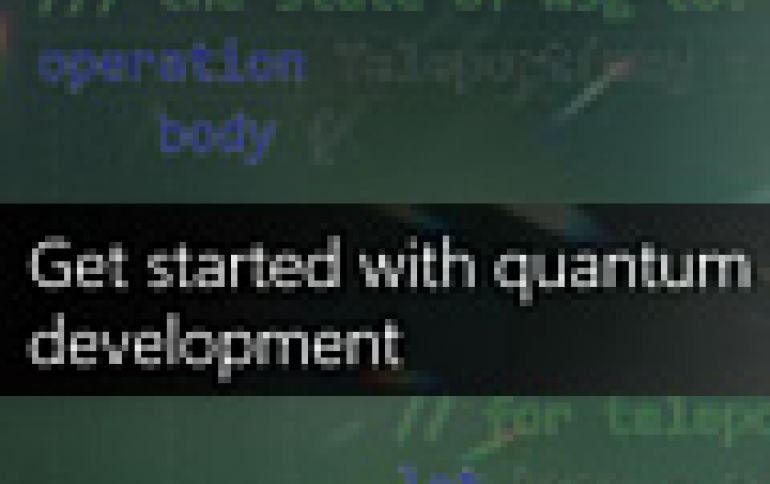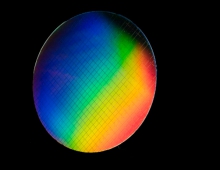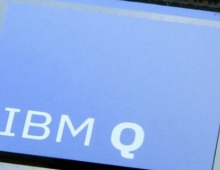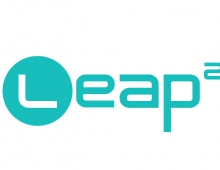
Microsoft Releases Preview of Quantum Development Kit, Q Sharp Programming Language
Microsoft is releasing a free preview version of its Quantum Development Kit, which includes the Q# - pronounced Q Sharp - programming language, a quantum computing simulator and other resources for people who want to start writing applications for a quantum computer.
The Quantum Development Kit, which Microsoft first announced at its Ignite conference in September, is designed for developers who want to learn how to program on quantum computers whether or not they are experts in the field of quantum physics.
It's integrated into Visual Studio, Microsoft's suite of developer tools, so aspects of it will be familiar to people who are already developing applications in other programming languages. And it's designed to work with a local quantum simulator, also released as part of the kit, that can simulate around 30 logical qubits of quantum computing power using a typical laptop computer. That will allow developers to debug quantum code and test programs on small instances right on their own computers.
For larger-scale quantum challenges, Microsoft also is offering an Azure-based simulator that can simulate more than 40 logical qubits of computing power.
Along with the kit, Microsoft also is making a suite of documentation, libraries and sample programs available.
That's a method of securely sharing information across quantum computing bits, or qubits, that are connected by a quantum state called entanglement.
"The hope is that you play with something like teleportation and you get intrigued," said Krysta Svore, a principal researcher at Microsoft who has led the development of the quantum software and simulator.
The kit will let people create applications that can run right now on the quantum simulator, and those same apps also will eventually work on a topological quantum computer, which Microsoft is in the process of developing for general purpose quantum computing.
Experts believe quantum computers could allow scientists to address some of the world's toughest challenges, such as world hunger or the dangerous effects of climate change. That's partly because quantum computers will be able to do calculations in hours or even minutes that would take the lifetime of the universe for even the most advanced classical computers in use today.
Quantum computers also are expected to help spur major advances in fields such as artificial intelligence.
The Quantum Development Kit is part of Microsoft's plan to build a full-fledged quantum computing system, which includes everything from the quantum computing hardware to the full software stack. The company's researchers also are working on projects focused on cryptography and security in a quantum computing world.
One big challenge about quantum computing is that qubits are extremely finicky. They need to be stored at very low temperatures, for example, or they might be disturbed and destroyed.
Because they are so finicky, most approaches to building qubits require massive amounts of error correction, or techniques to ensure information is delivered reliably. With a topological qubit, error correction is built right into the physics of the qubit itself. That makes it easier to scale up and deliver reliable results, and to do computations that are orders of magnitude larger than is possible on a classical computer, with fewer qubits than other quantum systems.
In the race to commercialize the new type of powerful computer, Microsoft is competing with Alphabet's Google, International Business Machines and a clutch of small, specialized companies to develop quantum computers.





















